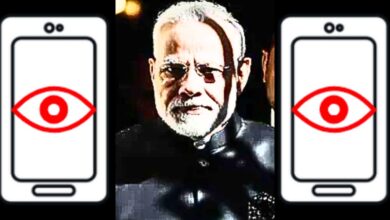What the first confirmed COVID-19 reinfection tells us about a future vaccine
Researchers at the University of Hong Kong confirmed the world’s first known case of coronavirus reinfection on Monday.
The reinfected person is a 33-year-old man from Hong Kong who was hospitalized with COVID-19 and discharged in April. The man tested positive for the virus again earlier this month after flying back to Hong Kong from Spain. He was asymptomatic the second time he was infected. His reinfection was detected by coronavirus testing that Hong Kong requires of all arriving travelers.
The researchers’ findings have several implications for any future coronavirus vaccination program. A vaccine aims to mimic the natural immunity to the coronavirus a human develops after contracting and recovering from COVID-19. The reinfection case is worrisome because it raises the question: if natural immunity wears off to the point that a patient can be reinfected, will immunity from a vaccine diminish too?
Universal need
At the very least, the reinfection finding underscores the universal need for a coronavirus vaccine. It suggests that coronavirus management tactics like the controversial herd immunity approach—in which health officials allow the disease to spread unchecked in hopes that a population will become naturally immune—won’t be sufficient. It also suggests that those who contract and recover from COVID-19 shouldn’t be exempt from a vaccine.
“Patients who have recovered from COVID-19 should not assume that they will not be infected again,” said Kelvin Kai-Wang To, a clinical associate professor in microbiology at the University of Hong Kong (HKU) and one of the researchers who headed the reinfection study. “They should still receive COVID-19 vaccine when it becomes available.”
Adjusting expectations
To is careful to draw a likely distinction between the immunity from a vaccine versus the natural immunity gained from an infection: the former is expected to be stronger, To said.
“Based on the data reported from vaccine studies, it’s likely that vaccination can induce a more potent and prolonged immunity than natural infection,” To said.
At the same time, though, the reinfection case should “adjust our expectations” for a vaccine since it suggests that any immunity to the coronavirus is finite, says Siddharth Sridhar, also a clinical assistant professor in microbiology at HKU. He wasn’t involved with the reinfection study but has been conducting research on the coronavirus.
“[The confirmed reinfection] might in fact be a signal that COVID-19 and the virus SARS-CoV-2 is actually here for good, because it is able to establish reinfection, and there will be no such thing as 100% immunity against the virus,” Sridhar said.
But even if it can’t elicit 100% immunity, a vaccine can be effective in “[priming] our immune response” to a coronavirus infection, Sridhar said.
That “priming” appears to have happened in the instance of the reinfection. The 33-year-old man displayed symptoms the first time he contracted COVID-19, but not the second time, perhaps because his immune system had learned how to suppress the virus. That’s “good news,” Sridhar said, since it suggests that even if the immunity from a vaccine can’t prevent reinfection, it might stop symptoms from flaring up a second time around.
“Even if the reinfection is symptomatic, it is hopeful that an earlier encounter with the virus—or an earlier encounter with a vaccine—will prime our immune responses somewhat and help to prevent a very severe reinfection,” Sridhar said. “As long as any of the vaccines currently in development can achieve this, really, mission accomplished.”
Targeted vaccination
The reinfection case raises new questions as it answers others. One big unknown is whether the reinfected patient was contagious the second time around.
Another is how long the immunity from his first infection lasted. Four and a half months elapsed between his two coronavirus infections, but there isn’t enough data yet to know whether his case is representative of the broader population.
The case suggests that vaccine trials should be monitoring for the duration of protection against the coronavirus, which is still unknown, To said.
What’s more, the reinfected man is healthy and relatively young; his experience with reinfection may not translate to more vulnerable population groups like elderly people and immunocompromised people.
“Theoretically, those with poor immune systems may have a higher chance of reinfection, but we don’t have the proof yet,” To said.
If the coronavirus starts to regularly circulate like viruses that cause the common cold and seasonal influenza currently do, future vaccination programs might encourage more vulnerable populations to receive periodic vaccinations. Regardless, as many people as possible should be vaccinated when a vaccine becomes available, Sridhar said.
“This patient could be an outlier … or [reinfection] might actually be quite a common occurrence,” Sridhar said.
Source: Fortune




